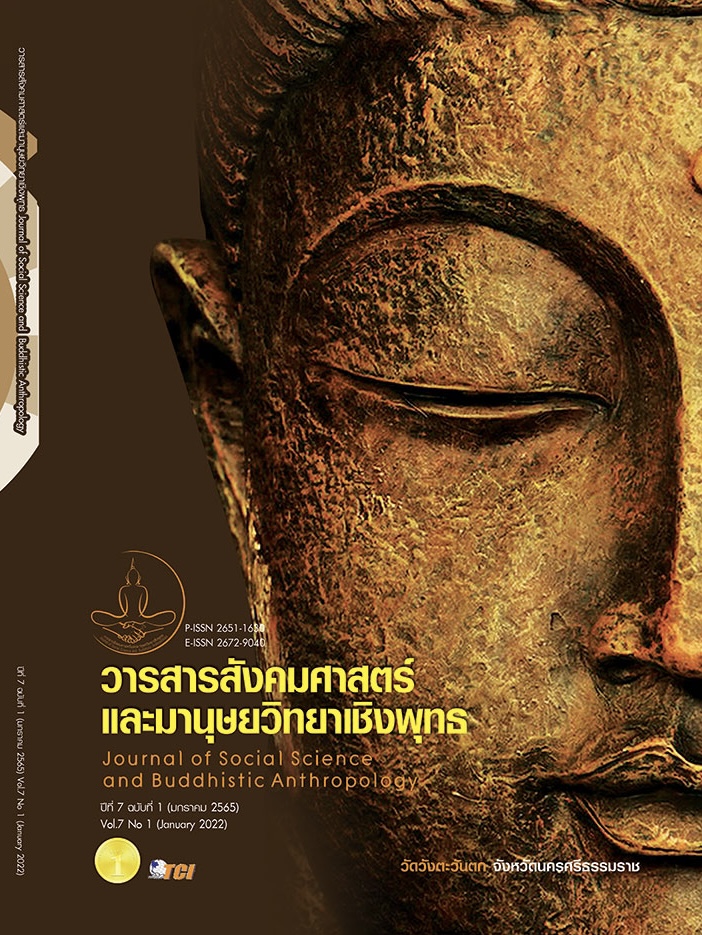THE CAUSAL INFLUENCE OF TRANSFORMATIONAL LEADERSHIP, HUMAN RESOURCE DEVELOPMENT, AND ORGANIZATIONAL INNOVATION TOWARDS DIGITAL ORGANIZATION TRANSFORMATION OF AGENCIES UNDER PROVINCIAL ELECTRICITY AUTHORITY REGION 1, NORTHERN REGION
Keywords:
Transformational leadership, Transformational leadership, Human Resource Development, Human Resource Development, Organizational innovation, Organizational innovation, Digital Transformation, Digital TransformationAbstract
The objectives of this research article were 1) to study the levels of opinion, transformational leadership factors, human resource development, organizational innovation, and digital transformation 2) to analyze the influence of transformational leadership, human resource development, and organizational innovation towards digital organization transformation of agencies under the Provincial Electricity Authority Region 1, the northern region. It was mixed methods research. The sample group consisted of 500 employees who were not department heads, they were level 3-7 of the Provincial Electricity Authority Region 1, the Northern Region, using the sample size criteria for the analysis of the structural equation model. The research tool was an online questionnaire and focus group of 40 participants for collecting qualitative data who are from the same group of participants but did not respond through an online questionnaire. Participants in the discussion according to the division of the organization. The data were analyzed by AMOS program and content analysis. The results showed that the opinions were high level and the causal influence on the digital transformation of agencies under Provincial Electricity Authority Region 1, North Region consisted of 1) transformational leadership 2) human resource development, and 3) organizational innovation; found that organizational innovation has the most direct influence and human resource development had total direct influence toward digital organization transformation except transformational leadership there is no direct influence on organizational innovation but had indirect effect toward organizational innovation and digital transformation through human resource development. The results were a new body of knowledge that could be a guideline for human resource development, including the assignment of organizational innovation strategies and guidelines for the Provincial Electricity Authority in other areas.
References
กัลยา วานิชย์บัญชา. (2556). การวิเคราะห์ความถดถอยและสหสัมพันธ์เชิงซ้อน การวิเคราะห์สถิติ: สถิติสำหรับการบริหารและวิจัย. (พิมพ์ครั้งที่ 14). . กรุงเทพมหานคร: โรงพิมพ์แห่งจุฬาลงกรณ์มหาวิทยาลัย.
กัลยารัตน์ ธีระธนชัยกุล. (2562). การจัดการการเปลี่ยนแปลง. (พิมพ์ครั้งที่ 1). กรุงเทพมหานคร: บริษัท ซีเอดยูเคชั่นจำกัด.
การไฟฟ้าส่วนภูมิภาค. (2562). รายงานผลการดำเนินงานประจำปี 2562. กรุงเทพมหานคร: กองงานแผนวิสาหกิจฝ่ายนโยบายและยุทธศาสตร์.
เกรียงศักดิ์ เจริญวงศ์ศักดิ์. (2559). ถอดรหัสแนวโน้มใหญ่ของโลกปี 2020: โอกาสและการปรับตัวของธุรกิจในอนาคต. วารสารวิทยาการจัดการ มหาวิทยาลัยราชภัฏสุราษฎร์ธานี, 3(1), 1-23.
โกศล จิตวิรัตน์. (2562). ปัจจัยแห่งความสำเร็จในการเปลี่ยนแปลงสู่องค์การดิจิทัลไทยแลนด์ 4.0 ในศตวรรษที่ 21. วารสาร Veridian E Journal ฯ สาขามนุษยศาสตร์ สังคมศาสตร์ และศิลปะ มหาวิทยาลัยศิลปากร, 12(6), 1796-1816.
ชัยเสฏฐ์ พรหมศรี. (2561). ภาวะผู้นำสำหรับผู้บริหารองค์การ. (พิมพ์ครั้งที่ 1). กรุงเทพมหานคร: สำนักพิมพ์ปัญญาชน.
ธนพงศ์พรรณ ธัญญรัตตกุล. (2561). Digital Transformation in action. (พิมพ์ครั้งที่ 2). กรุงเทพมหานคร: สำนักพิมพ์วิช.
พยัต วุฒิรงค์. (2562). การจัดการนวัตกรรม. (พิมพ์ครั้งที่ 2 ). กรุงเทพมหานคร: สำนักพิมพ์จุฬาลงกรณ์มหาวิทยาลัย.
เศรษฐพงค์ มะลิสุวรรณ. (2560). หุ่นยนต์แทนแรงงานมนุษย์...มันคือความจริง. เรียกใช้เมื่อ 5 กันยายน 2560 จาก http:// www.nationtv.tv/main/content/economy-business/378553940/
Armstrong, M. (1992). Strategies for Human Resource Management. London: Kogan Page.
Armstrong, M. (2006). Handbook Human Resource Management Practice, (10th ed.). London: Kogan Page.
Bollen, K. A. . (1989). Structural equations with latent variables. New York: Wliey.
Chesbrough, H. (2006). Open Business Models. Boston: Harvard Business School Press.
Cortina, J. M. (1993). What Is Coefficient Alpha? An Examination of Theory and Applications. Journal of Applied Psychology, 78(1), 98-104.
Hair, J. F. et al.,. (2006). Multivariate data analysis. (6th ed.). New Jersey: Pearson Prentice Hall.
Hiatt, J. M. (2006). ADKAR : A Model for Change in Business, Government and Our Community Loveland. Colorado: Prosci Research.
Karimi, J. & Walter, Z. (2015). The role of dynamic capabilities in responding to digital disruption: a factor-based study of the newspaper industry. Journal Management Information System, 32(1), 39–81.
Kinicki, A. (2008). Organizational Behavior: Key Concepts, Skills and Best Practices. 4th ed. Boston: McGraw-Hill Irwin.
Madsen, S. et al. (2007). Influential factors in individual Readiness for change. Journal of Business and Management, 12(2), 93-110.
Mumford, M. D. & Gustafson, S. B. (1998). Creativity syndrome: integration, application, and innovatiom. Psychological, 103(1), 27-43.
Nadler, L. (1984). The Handbook of Human Resource Development. New York: Wiley.
Nastasi, B. K. & Schensul, S. L. (2005). "Contributions of qualitative research o the validity of intervention research". Journal of School Psychology, 43(3), 177-195.
Polychroniou, P. (2008). "Styles of handling conflict in greek organizations: the impact of transformational leadership and emotional intelligence". International Journal of Organizational Behavior, 13(4), 52–67.
Swanson, R. A. & Holton, E. F. (2001). Foundations of Human Resource Development. San Francisco: Berrett-Koehler.
Watkins, K. E. & Marsick, V. J. (1996). Sculpting the Learning Organization: Lesso n in the Art and Science of Systemic Change. New York: Jossey–Bass.
Downloads
Published
How to Cite
Issue
Section
License
Copyright (c) 2022 Journal of Social Science and Buddhistic Anthropology

This work is licensed under a Creative Commons Attribution-NonCommercial-NoDerivatives 4.0 International License.









